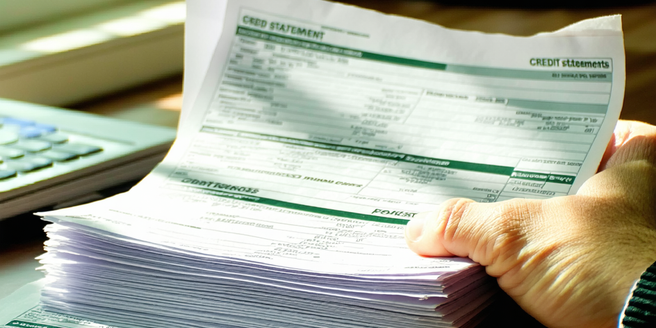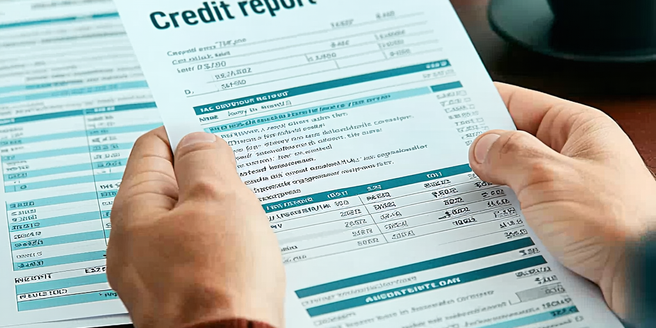Understanding Your Credit Report
| Credit Score | 500-850 | Indicates your creditworthiness |
| Credit Accounts | List of open accounts | History of credit use |
| Payment History | Past payments record | On-time or late |
| Credit Inquiries | Recent checks of credit | Potential impact on score |
| Debt-to-Credit Ratio | Proportion of debt used | Impacts on score heavily |
| Public Records | Bankruptcies, etc. | Negative impact on score |
Identifying Errors and Discrepancies
The first step in credit repair is identifying errors and discrepancies on your credit report. These might include incorrect personal information, accounts that do not belong to you, or inaccurate account statuses. Regularly reviewing your credit report is essential, as errors are not uncommon and can negatively impact your credit score. By obtaining copies of your report from all three major credit bureaus annually, you can meticulously examine the details. Compare the data with your own records and make sure everything is in order. Spotting these inaccuracies early can save you from future financial mishaps, and lenders are obligated by law to ensure accurate reporting. If you notice any issues or errors, you should take swift action to address them directly with the credit bureaus.
Disputing Inaccuracies Efficiently
Disputing inaccuracies on your credit report is a crucial part of credit repair. Once you identify errors, promptly contact the credit bureau in writing to initiate a dispute. It is important to include documentation supporting your claim, such as bank statements or other financial records. Be concise yet thorough in your description of the error and explain why the information is incorrect. Credit bureaus are legally required to investigate disputes, usually within 30 days. Follow up diligently with the credit bureau if you do not receive a response within this timeframe. Successful resolution of a dispute can result in a corrected credit report and a better credit score, reflecting your true financial situation.
Negotiating with Creditors
Negotiating with creditors can be an effective way to manage debts and repair your credit. Open communication with creditors often leads to workable repayment plans or reduced interest rates. Start by contacting your creditors directly to discuss your financial situation honestly. Remember, being prepared with a clear understanding of your financial standing and goals can significantly aid in this process. They may offer temporary hardship programs or other options you weren’t aware of. Documentation of these agreements is vital, as it can ensure creditors uphold their end of the arrangement. Successful negotiation can lead to positive updates on your credit report, eventually improving your credit score. Be persistent yet professional when negotiating, and always make sure any verbal agreement is confirmed in writing.
The Role of Credit Counseling Services
Credit counseling services offer support and guidance in managing debt and repairing credit. Qualified credit counselors provide personalized evaluations of your financial situation and create tailored plans to address credit issues. These services can negotiate directly with creditors and offer debt management programs to help you repay debt systematically. Choosing a reputable credit counseling service is important, as it ensures you receive credible advice and assistance. In some cases, counseling services can offer educational workshops and resources to improve financial literacy. Engaging with certified professionals can streamline the credit repair process and increase your chances of long-term success. It is essential to research and compare different options before selecting a service to ensure it meets your specific needs.
Building Positive Credit History
Building a positive credit history is essential for improving your credit score. Start by ensuring timely payments on all bills and obligations, as payment history greatly impacts your score. Open new credit accounts responsibly and ensure you use a mix of credit types, such as credit cards, installment loans, and retail accounts. It’s important to understand how each credit type affects your overall credit profile. Keep your credit utilization low, ideally below 30%, to demonstrate good financial management. Over time, responsible credit behaviors will positively influence your credit score. Regularly review your credit report to track your progress and make adjustments as needed. Remember, building strong credit takes time and dedication to consistent financial practices.
Debt Management and Consolidation
Managing and consolidating debt are important steps in credit repair. Begin by listing all outstanding debts, noting interest rates, balances, and payment dates. It is crucial to have a clear overview of your financial obligations to strategize effectively. By understanding your full financial picture, you can make more informed decisions. Prioritize debts with higher interest rates, as settling these first can save you money in the long run. Debt consolidation involves combining multiple debts into a single loan with a lower interest rate. This can simplify your financial management and reduce monthly obligations. Explore options such as balance transfer credit cards, personal loans, or home equity loans for consolidation. Effective debt management demonstrates disciplined financial behavior to creditors, improving your creditworthiness over time.
The Importance of Timely Payments
Timely payments are crucial in credit repair and building a better financial future. Payment history accounts for a significant portion of your credit score, and late payments can severely impact it. Establish a budgeting system that ensures all bills are paid on time. Automated payments and reminders can help you avoid missing due dates. Evaluate your spending habits to allocate sufficient funds for financial obligations each month. Setting financial goals can also motivate you to maintain discipline in managing your finances. Consider setting aside an emergency fund to cover unexpected expenses. If you anticipate difficulties in meeting obligations, contact creditors in advance to discuss potential solutions. Consistently making timely payments improves credit score over time and demonstrates reliability to potential lenders.
Using Secured Credit Cards Wisely
Secured credit cards can be valuable tools in credit repair. They require a cash deposit, which typically serves as your credit limit. Responsible use of secured cards can help you rebuild your credit. It’s important to choose a secured card with low fees and favorable terms. Use the card for small, manageable purchases, and ensure full payment monthly to avoid interest building up. Regular on-time payments with a secured card can report positively to credit bureaus. Consistently doing this can also help establish a positive credit history. Over time, this activity can improve your credit score, allowing you to qualify for unsecured credit cards with better terms. Secured credit cards offer a foundation for rebuilding credit and demonstrate financial responsibility to creditors.
Tracking Your Credit Progress Over Time
Tracking your credit progress over time is a fundamental aspect of effective credit repair. Regularly reviewing your credit report aids in identifying improvements and areas needing attention. Make it a habit to set reminders for checking your credit report quarterly. Use free annual reports from the major credit bureaus to monitor information accuracy. Set tangible milestones for credit improvement and celebrate small victories along the way. Commit to healthy financial habits that promote steady credit growth, such as timely bill payments and smart credit utilization. Implementing these practices over time helps to maintain focus and motivation, leading to a healthier financial profile. Regular tracking ensures you stay informed and can address challenges swiftly.



